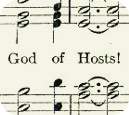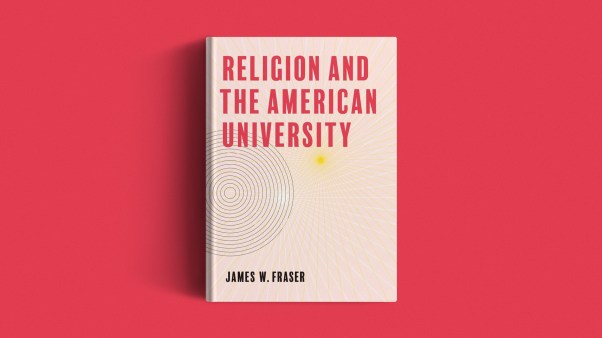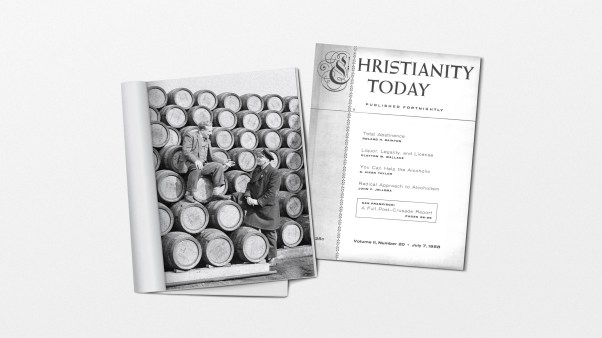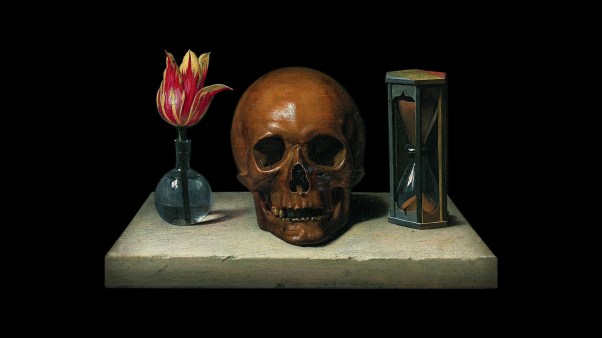Despite the triumph of vapid (but danceable!) bubble-gum pop, lolita-tart nymphets and manufactured boy-bands on radio, if you invested the energy to spin the dial or scour the record stores, grownup fans of popular music could still find reasons to be exultant in 1999. The following are ten of my favorites, one surprising also-ran, and the two worst I heard this year. Colleges deemed not religious enoughThe National Labor Relations Board (NLRB) decided in May that Chicago’s St. Xavier’s University cannot prevent its adjunct faculty from unionizing. Federal law allows religious schools to prohibit collective bargaining if it might interfere with their first responsibility to a religious mission. But the NLRB found that the Catholic school is not a “church-operated institution” and lacks a “substantial religious character.” The NLRB issued a similar ruling against Manhattan College in January. Both schools argue their inclusion of non-Catholic faculty and students is evidence of church teaching, not secularism.Court: Explain wave of Christian complaintsUNITED KINGDOM The European Court of Human Rights asked the government in June to state formally whether it believes four British Christians have had their religious rights violated. Two of the four faced discipline at work for wearing cross necklaces; the other two received sanctions for refusing services to homosexual couples. British courts have repeatedly dismissed their complaints. Trevor Phillips, chairman of the UK’s Equality and Human Rights Commission, told The Telegraph that Christians do face discrimination but that politically motivated faith groups often blow it out of proportion. The Evangelical Alliance UK disputed Phillips’s remarks.Trial suspended for massacre suspectsPAKISTAN Nearly 70 suspects in the massacre of Christians in Gojra have a year of freedom on bail after the Anti-Terrorism Court suspended the trial because a key witness fled the country. The August 2009 attack, triggered by rumors that Gojra Christians had desecrated the Qur’an, left ten Christians dead and almost 100 homes burned. Witnesses have reported facing intimidation, and several have already fled the country. Refugees improperly quizzed on religionCANADA Refugee advocates are criticizing immigration officials after details emerged about a Chinese Christian’s 2007 hearing. The refugee board denied the man’s religious refugee status because, it said, he could not describe what Jesus was “like as a person” beyond creedal statements. Canada’s Federal Court upheld the refugee board’s decision this year, but admitted that the questions were “somewhat awkward.” The court also recently ruled that an Egypt-based visa officer had made bad decisions when interviewing four Eritrean nationals, such as asking two professing Pentecostals to name the “seven gifts of the Holy Spirit.”Lawmakers mull limiting abortionRUSSIA Parliamentarians are considering legislation that would outlaw free abortions at state facilities and require a prescription for the morning-after pill. While abortion was common during the Soviet era, a pro-life movement has recently materialized, spurred by a resurgent Russian Orthodox Church and concerns over Russia’s dangerously low birthrate. The United Nations says Russia has the highest abortion rate in the world, and the country’s abortions significantly outnumber births.Denominational funds eliminatedThe Christian-focused investment firm FaithShares liquidated four of its five exchange-traded funds on July 15. Due to lack of investor interest, the firm said it shut down funds supporting the denominational values of Baptists, Methodists, Lutherans, and Catholics. A general Christian Values Fund remains active.College drops national anthemIndiana’s Goshen College decided in June to drop its brief experiment with playing the national anthem before athletic events. The 117-year-old Mennonite school has in the past rejected “The Star-Spangled Banner” as too entwined with military imagery and nationalism, which pacifist Mennonites traditionally reject. In February 2010, Goshen started playing an instrumental version of the song; now, after a year of debate, the school is looking for an alternative that honors both American and Mennonite traditions.Karnataka Christians demand justiceINDIA The state government of Karnataka will furnish funds to its Christian community for the first time, earmarked to promote community development and help rebuild churches. Karnataka churches suffered numerous attacks in 2008 and 2009, and observers accuse the state government, dominated by the Hindu nationalist Bharatiya Janata Party, of being too lenient with those responsible. “Christians want justice, not money,” said Indian archbishop Bernard Moras, according to Asianews.it.Justice Dept. contests CCM star’s parsonagesThe Department of Justice appealed a U.S. Tax Court ruling that trumpeter Phil Driscoll can claim a parsonage allowance on two homes. The IRS had earlier determined that Driscoll could claim his primary residence in Cleveland, Tennessee, but not his second home. At issue is whether the clergy tax exemption of “a home” is singular or plural. Driscoll, a Grammy Award winner with dozens of Christian albums, has already served time in prison for multiple counts of income-tax evasion during the years at issue. Catholic island wants divorce legalMALTA A modest majority of voters (52.7%) in the overwhelmingly Catholic island nation approved a non-binding referendum to make divorce legal. It is now up to the Maltese parliament to enact the legislation, which would allow divorce for couples who have been separated for at least four years. Malta, where nearly three-quarters of the population goes to Mass on Sundays, would be the last nation in Europe to allow divorce.Belgium eyes minority sectsBELGIUM A proposed law may outlaw some “sectarian” religious groups. The law, according to Belgian newspaper De Morgen, penalizes “the abuse of vulnerable persons.” Lawmakers who support the measure want to use it to root out religious practices they consider “physical or psychological subjection” or “techniques susceptible to alter one’s capacity of discernment.” Critics say the law’s wording is vague and would serve as an excuse to discriminate against minority faiths. The Evangelical Alliance of Belgium said some Pentecostal groups have been mislabeled “cults” in the past, but alliance members now have sufficient state recognition to avoid running afoul of such a law.Victoria debates church-state questionsAUSTRALIA Public education in the state of Victoria is fielding heavy criticism because more than 90 percent of the teachers in its Special Religious Instruction program come from the Christian group ACCESS Ministries. Detractors accuse access of proselytizing in class and say the state should take its cues from the United Kingdom, which replaced Christian-focused classes with “world religions” education in the 1970s. Meanwhile, Victoria’s Legislative Assembly changed its new anti-discrimination law. Among the changes, it no longer requires religious organizations to show that adherence to religious doctrine is an “inherent requirement of the job” if they wish to discriminate on religious or sexual grounds.Anglicans retain faith but not building CANADA Four Anglican churches in Vancouver lost their final chance to keep their buildings when the Supreme Court of Canada declined to hear their appeal. A British Columbia appeals court in November had ruled that the properties—worth million—belong to the Anglican Church of Canada, not the congregations. The churches (which include St. John’s, the largest Anglican church in Canada) left the denomination in 2008 over the blessing of same-sex unions and other issues. “We’ve always said from the get-go that we might have to choose between our faith and our buildings, and we chose our faith,” Cheryl Chang, chancellor to the Anglican Network in Canada, told the National Post.Copyright © 2011 Christianity Today. Click for reprint information.Related Elsewhere:See Christianity Today‘s news section and liveblog for more news updates.
Colleges deemed not religious enoughThe National Labor Relations Board (NLRB) decided in May that Chicago’s St. Xavier’s University cannot prevent its adjunct faculty from unionizing. Federal law allows religious schools to prohibit collective bargaining if it might interfere with their first responsibility to a religious mission. But the NLRB found that the Catholic school is not a “church-operated institution” and lacks a “substantial religious character.” The NLRB issued a similar ruling against Manhattan College in January. Both schools argue their inclusion of non-Catholic faculty and students is evidence of church teaching, not secularism.Court: Explain wave of Christian complaintsUNITED KINGDOM The European Court of Human Rights asked the government in June to state formally whether it believes four British Christians have had their religious rights violated. Two of the four faced discipline at work for wearing cross necklaces; the other two received sanctions for refusing services to homosexual couples. British courts have repeatedly dismissed their complaints. Trevor Phillips, chairman of the UK’s Equality and Human Rights Commission, told The Telegraph that Christians do face discrimination but that politically motivated faith groups often blow it out of proportion. The Evangelical Alliance UK disputed Phillips’s remarks.Trial suspended for massacre suspectsPAKISTAN Nearly 70 suspects in the massacre of Christians in Gojra have a year of freedom on bail after the Anti-Terrorism Court suspended the trial because a key witness fled the country. The August 2009 attack, triggered by rumors that Gojra Christians had desecrated the Qur’an, left ten Christians dead and almost 100 homes burned. Witnesses have reported facing intimidation, and several have already fled the country. Refugees improperly quizzed on religionCANADA Refugee advocates are criticizing immigration officials after details emerged about a Chinese Christian’s 2007 hearing. The refugee board denied the man’s religious refugee status because, it said, he could not describe what Jesus was “like as a person” beyond creedal statements. Canada’s Federal Court upheld the refugee board’s decision this year, but admitted that the questions were “somewhat awkward.” The court also recently ruled that an Egypt-based visa officer had made bad decisions when interviewing four Eritrean nationals, such as asking two professing Pentecostals to name the “seven gifts of the Holy Spirit.”Lawmakers mull limiting abortionRUSSIA Parliamentarians are considering legislation that would outlaw free abortions at state facilities and require a prescription for the morning-after pill. While abortion was common during the Soviet era, a pro-life movement has recently materialized, spurred by a resurgent Russian Orthodox Church and concerns over Russia’s dangerously low birthrate. The United Nations says Russia has the highest abortion rate in the world, and the country’s abortions significantly outnumber births.Denominational funds eliminatedThe Christian-focused investment firm FaithShares liquidated four of its five exchange-traded funds on July 15. Due to lack of investor interest, the firm said it shut down funds supporting the denominational values of Baptists, Methodists, Lutherans, and Catholics. A general Christian Values Fund remains active.College drops national anthemIndiana’s Goshen College decided in June to drop its brief experiment with playing the national anthem before athletic events. The 117-year-old Mennonite school has in the past rejected “The Star-Spangled Banner” as too entwined with military imagery and nationalism, which pacifist Mennonites traditionally reject. In February 2010, Goshen started playing an instrumental version of the song; now, after a year of debate, the school is looking for an alternative that honors both American and Mennonite traditions.Karnataka Christians demand justiceINDIA The state government of Karnataka will furnish funds to its Christian community for the first time, earmarked to promote community development and help rebuild churches. Karnataka churches suffered numerous attacks in 2008 and 2009, and observers accuse the state government, dominated by the Hindu nationalist Bharatiya Janata Party, of being too lenient with those responsible. “Christians want justice, not money,” said Indian archbishop Bernard Moras, according to Asianews.it.Justice Dept. contests CCM star’s parsonagesThe Department of Justice appealed a U.S. Tax Court ruling that trumpeter Phil Driscoll can claim a parsonage allowance on two homes. The IRS had earlier determined that Driscoll could claim his primary residence in Cleveland, Tennessee, but not his second home. At issue is whether the clergy tax exemption of “a home” is singular or plural. Driscoll, a Grammy Award winner with dozens of Christian albums, has already served time in prison for multiple counts of income-tax evasion during the years at issue. Catholic island wants divorce legalMALTA A modest majority of voters (52.7%) in the overwhelmingly Catholic island nation approved a non-binding referendum to make divorce legal. It is now up to the Maltese parliament to enact the legislation, which would allow divorce for couples who have been separated for at least four years. Malta, where nearly three-quarters of the population goes to Mass on Sundays, would be the last nation in Europe to allow divorce.Belgium eyes minority sectsBELGIUM A proposed law may outlaw some “sectarian” religious groups. The law, according to Belgian newspaper De Morgen, penalizes “the abuse of vulnerable persons.” Lawmakers who support the measure want to use it to root out religious practices they consider “physical or psychological subjection” or “techniques susceptible to alter one’s capacity of discernment.” Critics say the law’s wording is vague and would serve as an excuse to discriminate against minority faiths. The Evangelical Alliance of Belgium said some Pentecostal groups have been mislabeled “cults” in the past, but alliance members now have sufficient state recognition to avoid running afoul of such a law.Victoria debates church-state questionsAUSTRALIA Public education in the state of Victoria is fielding heavy criticism because more than 90 percent of the teachers in its Special Religious Instruction program come from the Christian group ACCESS Ministries. Detractors accuse access of proselytizing in class and say the state should take its cues from the United Kingdom, which replaced Christian-focused classes with “world religions” education in the 1970s. Meanwhile, Victoria’s Legislative Assembly changed its new anti-discrimination law. Among the changes, it no longer requires religious organizations to show that adherence to religious doctrine is an “inherent requirement of the job” if they wish to discriminate on religious or sexual grounds.Anglicans retain faith but not building CANADA Four Anglican churches in Vancouver lost their final chance to keep their buildings when the Supreme Court of Canada declined to hear their appeal. A British Columbia appeals court in November had ruled that the properties—worth million—belong to the Anglican Church of Canada, not the congregations. The churches (which include St. John’s, the largest Anglican church in Canada) left the denomination in 2008 over the blessing of same-sex unions and other issues. “We’ve always said from the get-go that we might have to choose between our faith and our buildings, and we chose our faith,” Cheryl Chang, chancellor to the Anglican Network in Canada, told the National Post.Copyright © 2011 Christianity Today. Click for reprint information.Related Elsewhere:See Christianity Today‘s news section and liveblog for more news updates.
Buddy Miller, Cruel Moon (Hightone Records) Julie Miller, Broken Things (Hightone Records).
This husband and wife team are quickly becoming the heroes of America’s burgeoning alt-country scene, and these two records offered all the reason in the world why. Cruel Moon delivers some of the best twangy, gut-wrenching country playing you’ll ever hear—only Buddy offers it with a playful rock and roll underbelly that punches his songs beyond simple front-porch charm into an energy and urgency rarely found on the rhinestone circuit. Buddy explores the classic country themes on Moon (lovin’, leavin’, bein’ left), but never slips into Nashville cliché—rather, he brings a soulfulness, kindness and generosity to his vocals that made me a true believer in the power of country.Julie Miller’s seventh album, Broken Things, is an equally good disc, but delivers a less-traditional country sound than her husband’s—one that suggests equal parts Appalachia and the Greenwich Village. Julie, who released four records to the Christian market in the early ’90s, has a frail, waifish voice that always sounds ready to break, and that’s its strength—her power doesn’t come from vocal gymnastics or orchestral swells. Rather, Miller’s power is in the transparency she brings to the delivery of her exquisitely crafted songs; listening, one gets the sense that even in a whisper you’re getting all of her in every sound. Add to that the consistent theme of the reach of grace to the weakest that runs through the entire record, and you’ve got not only a breathtakingly lovely disc, but an important one as well.
Manic Street Preachers, This Is My Truth, Tell Me Yours (Virgin)
Don’t get fooled by the band’s name: this Brit-pop trio is not a Christian band. Not even close. What they are is astounding: Truth is the most powerful, complete sounding disc I’d heard since Radiohead’s OK Computer, with huge, defiantly produced songs hung together by strong melody, enormous guitars and searing rhythm layered under soaring, unnervingly beautiful singing that is something like Freddie Mercury’s, but minus all the sock-in-the-pants bravado. Truth’s power, however, transcends its sound. MSP’s songs offer as disturbing and bleak a picture of the disintegration of European postmodernity as I can imagine. But don’t let that scare you away; for every terrifying morbidity in the lyrics (there are songs about mass murderers, confused sexuality, creeping fascism, longing for redemption and, of course, lost love) there is twice as much musical grace—making the record, in fact, surprisingly transcendent. Easily my favorite record of the year.
Tom Waits, Mule Variations (Epitath)
Waits’ voice can only be described as the sound of a whiskey-soaked, chainsmoking, grizzled vagrant. Coupled with the stunning, surprising depth of his songwriting and the dizzying complexity of the sounds he creates around them, and his singing takes on a mythic, nearly biblical, quality that at once has the perspective of a back-alley brawl and angelic overseer (a la Wim Wenders). In the gutter Waits discovers kindness and passes it along to us.
Billy Crockett, Simple Plans (Walking Angel Records)
I’ll confess to a conflict of interest right away in suggesting this collection inspired by the CCM veteran’s work with Habitat for Humanity. But even if I didn’t work for the homebuilding ministry, I’d still recommend this disc to anyone who loves finely crafted, clever, and moving songwriting, flawless guitar-playing, and great vocals. Moreover, Crockett’s songs take the task of storytelling and theology in equal stride, offering anecdotes and observations that simply and profoundly make a point: if there’s grace to be found (or shared) in this life, it will be in the moments when the unlovely are offered love. A great record.
Beth Orton, Central Reservation (Arista)
Orton’s second solo disc, Central Reservation (Arista), is a postmodern triumph. The English songwriter has found a way to blend traditional folk-pop song structures with a production that borrows from techno, electronica, and “jungle” schools of dance music, all without losing that sedate, coffee-house vibe. Orton’s sweet husk of a voice, her decidedly off-the-beaten-track look at the world, and a huge dose of attitude result in a haunting, penetrating, somber record that once you let in, won’t go away. My wife listened the first time and said simply, “This is a record I want to get to know.” Me too.
Emmylou Harris/Linda Ronstadt, Western Wall/The Tucson Sessions (Asylum)
Two of the best voices of the last 30 years in pop music unite for a collection that covers of some of the best songwriters working today (including Rosanne Cash, Jackson Browne, Leonard Cohen, and Bruce Springsteen). The disc is notable not only for Harris’ and Ronstadt’s near-perfect singing (there is something truly heavenly at work in their version of Sinead O’Connor’s “This Is To Mother You”) or their continued preoccupation with things spiritual (their cover of Cash’s title track offers a stunning confession of spiritual need and yearning) but also for their daring production choices. Western Wall is a genuine “alternative” record, proving that both of these 50-something women could teach the kids a thing or two about “cutting edge.”
Moby, Play (V2)
Who’d a thunk it? A self-proclaimed vegan/environmentalist/Christian/porn-loving/techno-dance guru makes a decidedly modern record of disc of old blues and gospel songs and it turns out to be the most unified, compelling, and genuinely uplifting disc of the year? Who says chaos can’t make order?
Bruce Cockburn, Breakfast in New Orleans, Dinner in Timbuktu (TrueNorth/Rykodisc)
After 30 years you’d expect something stale from this Canadian Christian social activist and songwriter. But no, Cockburn keeps creating literate, stunningly musical, and disarmingly intimate music that manages to fire passion—for lovemaking, peacemaking and tableturning. While Breakfast won’t have a radio hit (the songs are looong) it sheer melodicism will grow on you with each listen.
Lone Justice, This World is Not My Home (Geffen)
When metalhead hair bands ruled the rock scene, Lone Justice, fronted by the lovely and dynamic Maria McKee, was the great hope for 1980s fans of real rock and roll. Emerging from the fringes of the Sunset Strip street scene, McKee et. al forged a sound that morphed the brash energy of punk with the soaring melodies of folk and country and a streetwise faith that was more restless in church than it was in a tavern, all seared together by the perfect heat of Maria’s Janice Joplin meets Dolly Parton vocals. This year, a full 15 years after this band’s first record barreled onto our turntables, this CD collection gives us the best of Lone Justice’s two albums, and a few live tracks, one new cut, and enough pure energy to make me turn my stereo up too loud for the first time in years.
The Ragamuffins, Prayers of a Ragamuffin (Myrrh)
The individual members of The Ragamuffins had critically acclaimed solo careers and bands for most of the ’90s, but it was in coming together to support and serve their friend, the late Rich Mullins, first as his band and then as his legacy, that this quartet found its stride. If the Rags’ first post-Mullins disc, last year’s The Jesus Record, set the bar for thoughtful, passionate, intimate and compelling Christian pop music, this followup, released the last week of the decade, meets or exceeds it on every level. The songs on Prayers include huge, radio-friendly ballads, rollicking singalongs, and telling, introspective and arty folk-rock, all of which offer a starkly biblical—and subversive—response to the health/wealth triumphalism that masquerades as Christian pop culture in America.
Jars of Clay, If I Left the Zoo (Essential)
I was one of the few Christian critics who admitted to abject boredom in the face of Jars’ meteoric rise to superstardom, so I feel compelled to acknowledge that in Zoo, the boys have found a genuinely interesting, perhaps even exciting sound. The reinvigorated Jars are just as pious as on their first two discs, but this time they offer a Sgt. Peppers-heavy sound that suggests a future in music, not just in church.
The Worst of 1999:
The McCaughey Septuplets,Sweet Dreams (Word)
I didn’t listen to the whole thing, and the songs weren’t horrible—certainly they were no worse than most other schlocky CCM. But the unmitigated shamelessness in selling this product (the press preview came with a baby’s ribbon) makes this far and away the worst record of the year.
Gary Chapman, “Daddy Cut My Hair,” from the album Outside (Reunion)
Some songs are sentimental old fools, and some songs take sentimentalists for fools. A song that makes “Butterfly Kisses” seem streetwise, “Daddy Cut My Hair” is definitely in the latter category. The song tells the story of a boy growing up to be cared for by, then hate, then reconcile, then care for his father in old age (and eventually cut his hair). It is far too typical of Christian music’s failsafe sentimentality. Fundamentally cynical, this song doesn’t trust its listeners, their experiences, or their emotions, and so rather than evoke genuine feeling from them, it manufactures it for them, and leaves them no choice how to feel, react or think. Too bad, too, from an artist whose previous records have been as raw and real as polished pop allows.
Dwight Ozard is music critic forPrism magazine and Director of Public Affairs for Habitat for Humanity.
Related Elsewhere
For a second opinion, read today’s other article on the top recordings of 1999, by Campus Life magazine’s Martin Cockroft.
Copyright © 2000 Christianity Today. Click for reprint information.








